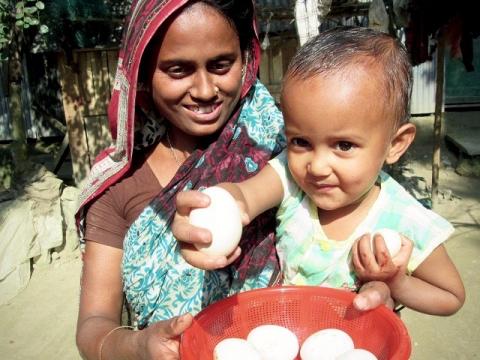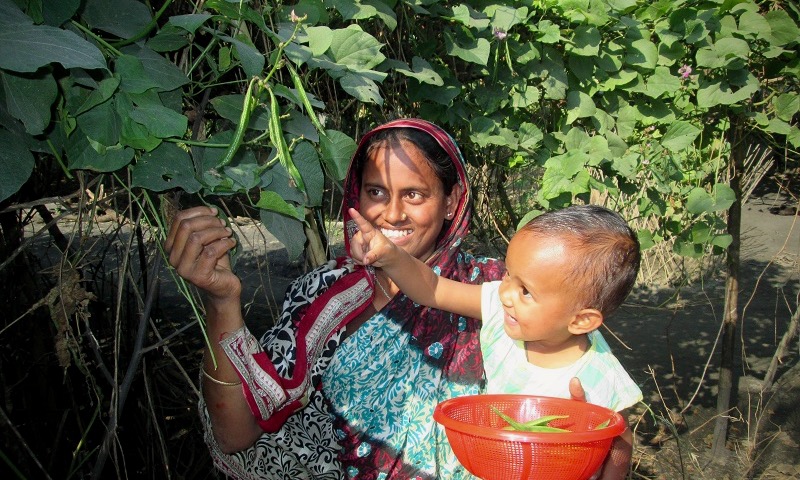Nobokoli Project: Fighting hunger and poverty

“I was always upset and frustrated because I was unemployed,” says Mahfuja Begum. “My husband, Munnes, used to work as a day labourer, earning 4,000 taka (about $50 USD) per month.”
Mahfuja, a mother of two sons, an eight-year-old with a physical disability and a two-year-old, lives in a village named Krishno Nagar in northern Bangladesh. Due to her family’s hardship, the 31-year-old had no idea how to improve her children’s physical and mental health. “I didn’t give my son complementary food. Actually, I wasn’t aware of the advantages of that food."
I found out that my baby was suffering physically because of malnutrition.
Of her youngest child, she adds, “I saw my son Mahfuj was suffering from diarrhoea. He looked very thin.” And when World Vision visited to gather information about her family, she was advised to take him to a World Vision-supported session on children’s physical development.
“From the session, I found out that my baby was suffering physically because of malnutrition,” she says of Mahfuj. “I was worried.”
On the day, Mahfuja learned about health care and World Vision’s PD (Positive Deviance) Hearth training, whereby parents discover the practices of other locals with healthy children.
Mahfuj was accepted to the PD Hearth programme in 2014, his weight increasing from 6.5kg in August of that year to 7.6kg by the second week of September. He is now two years old and in good health as a result of regular feeding following PD Hearth advice.
“I’m happy to have seen my child’s health cha
nge,” says Mahfuja, who has shared what she learned from World Vision with her neighbours.
Mahfuja has also joined the Bhabki Economic Development Group, inspiring her to launch a home-based farm to grow crops and rear poultry to meet the nutritional needs of her family and earn additional income.
Considering her performance, Mahfuja was chosen to participate in a poultry-rearing programme and received support that included a business plan. Already, she has sold poultry for the equivalent of 190 US dollars in the last five months.
I dream of seeing my children get an education and have good health. And I want to run a small business and get out of poverty.
With her family now having vegetables, eggs and meat, Mahfuja says, “I dream of seeing my children get an education and have good health. And I want to run a small business and get out of poverty.”
Mahfuja explains that although some of her neighbours aren’t direct participants in World Vision’s Nobokoli Project, they did attend its training sessions on poultry rearing and later began their own such enterprises.
One of her neighbours, Khodeja Begum, says, “Mahfuja Begum has been successful with support from the Nobokoli Project by using better methods of growing vegetables and rearing chickens. When we have any problems rearing poultry, we go to Mahfuja and learn better techniques.”
